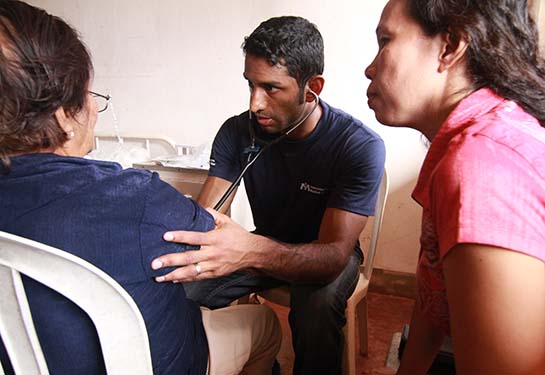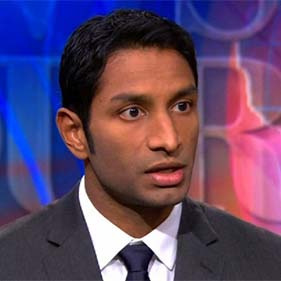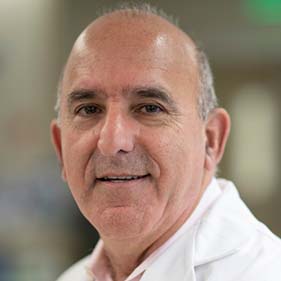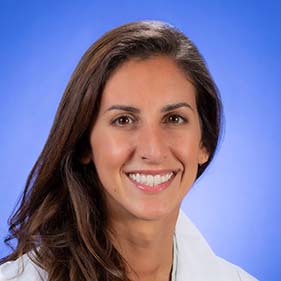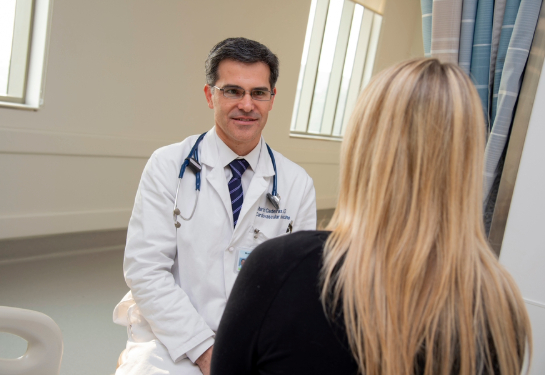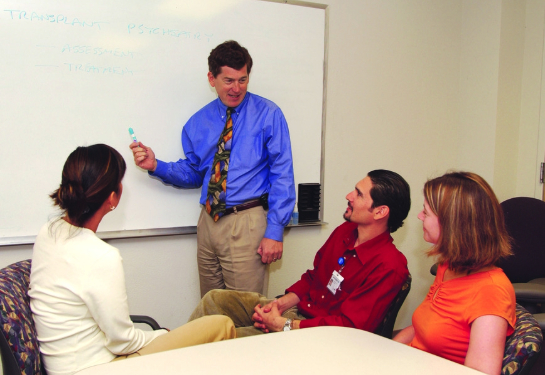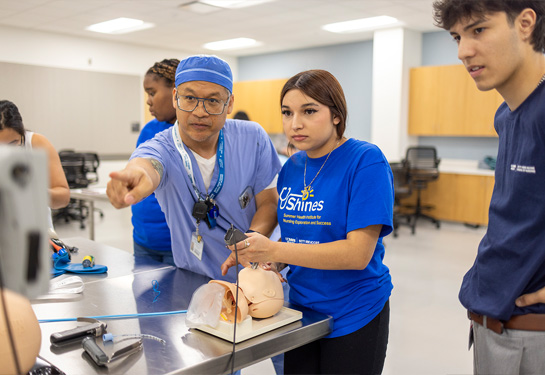Helping communities in need, wherever that may be
Emergency medicine physician exemplifies department's mission by providing humanitarian aid in Ukraine
Pranav Shetty's definition of community is much broader than most people's. For him, it's global.
“When it comes to health, there is an interconnectedness of people and their environments that can affect the well-being of all,” Shetty explained. “If our neighbors do not have access to care, it puts everyone at greater risk.”
Shetty, assistant professor of emergency medicine and medical director of disaster services at UC Davis Health, is among the many United States healthcare professionals who have volunteered to provide desperately needed medical and humanitarian aid in Ukraine.
Here at UC Davis, there is an established culture that supports the idea of helping communities in need, wherever that may be.” —Pranav Shetty
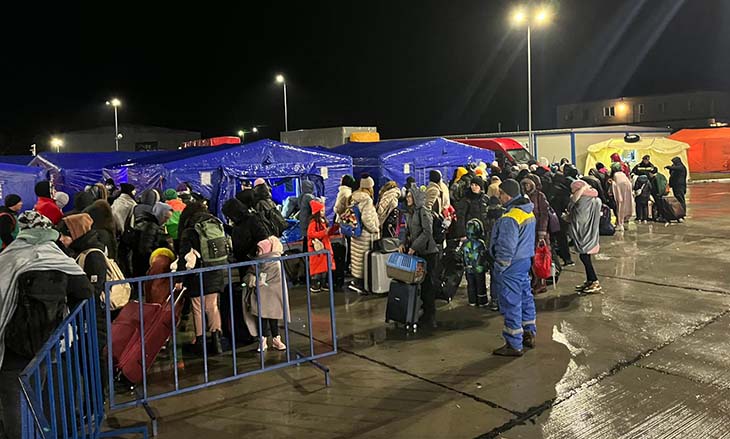
Through Project Hope, a renowned global health and humanitarian relief organization, Shetty spent three weeks abroad performing on-the-ground assessments – advising on required pharmaceuticals, helping secure medical supply chains and defining the scope of medical support needed.
Now home, Shetty captured the sentiments of many when he shared his motivation for volunteering. “Like most health professionals, I want to go where I can help the most.”
A career in disaster relief
Prior to joining UC Davis Health's Department of Emergency Medicine in the summer of 2021, Shetty had worked for years providing disaster relief overseas. Working for the International Medical Corps and Save the Children, he was often one of the first to deploy to affected areas in the aftermath of a disaster or crisis.
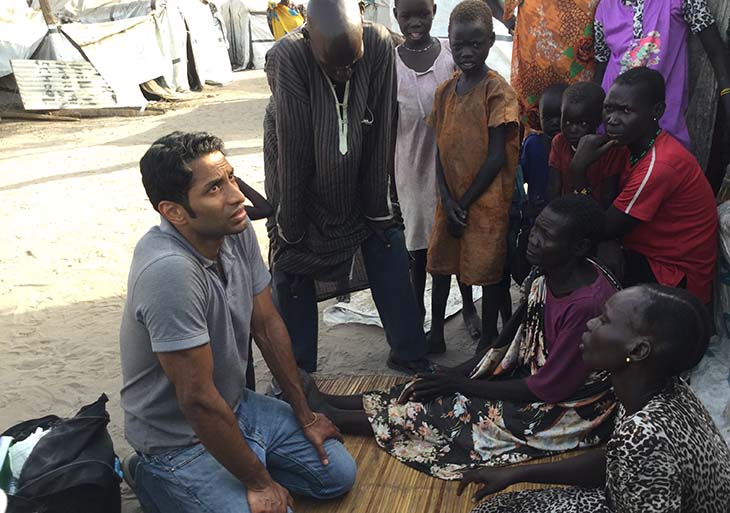
Among his efforts, Shetty went to Libya, where he trained emergency medics and treated patients in a field hospital just a few miles from the front lines of the conflict. He was deployed to the Philippines to treat patients and manage programs in the aftermath of Typhoon Haiyan. He also assisted Syrian refugees and helped establish health care programs to support them in Iraq and Jordan.
In 2014, Shetty went to Liberia to establish and oversee two Ebola treatment units where he managed teams of rapid responders that deployed to Ebola hot spots in the country.
His work earned him an invitation from President Barack Obama to attend the 2015 State of the Union address, where Shetty represented military and civilian health care workers deployed to West Africa to combat Ebola.
“My experience working overseas was incredibly rewarding and really changed the lens through which I see patient care,” Shetty explained. “I knew when I returned the U.S. I wanted to work at an institution that shared my broader view of what patient care should look like.”
Shetty credits Nate Kuppermann, chair of emergency medicine and associate dean for Global Health at the UC Davis School of Medicine, and the department’s robust global health programs for attracting him to the medical center.
“Here at UC Davis, there is an established culture that supports the idea of helping communities in need, wherever that may be.”
We are committed to high quality care to all patients, especially the most vulnerable in our communities and abroad. This commitment raises the bar to care of our patients in the emergency department.” —Nate Kuppermann
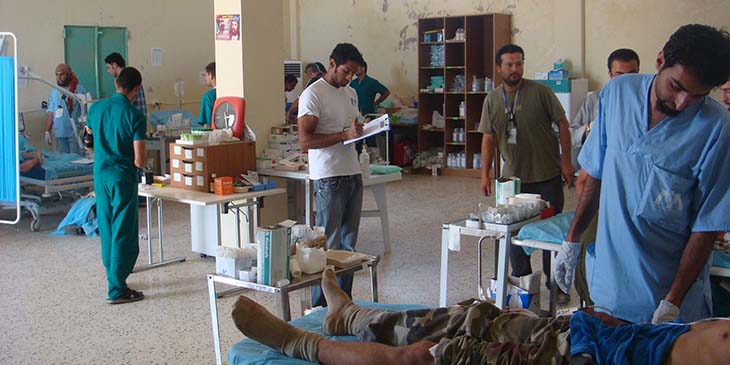
Committed to improving the well-being of all
UC Davis Health uses an interdisciplinary approach, known as One Health, on issues surrounding global health. This vision of One Health recognizes the interconnectedness of people, animals, and the environment and aims to identify and address the fundamental causes of poor health to improve the well-being of all.
“We understand that a patient’s health is influenced by many factors including their environment, access to healthcare, socioeconomic status, and other complex social determinants of health,” Kuppermann said. “We are committed to high quality care to all patients, especially the most vulnerable in our communities and abroad. This commitment raises the bar to care for our patients in the emergency department.”
Within emergency medicine, the department has established a Global Emergency Medicine Division. The division team works to establish a culture in the department to strive to improve health and equity for all patients by providing culturally competent health care and education. Through ongoing collaborations with domestic and international partners, the team prepares emergency medicine students, residents and fellows to be conscientious health care practitioners.
“To improve the health of our patients, we must provide high-quality, individualized care while also striving to address health inequities and support initiatives that improve health in our local and international communities,” explained Shakira Bandolin, assistant professor of emergency medicine and director of the Global Emergency Medicine Division. “We strive to improve health care access, education, and care around the world through global health research, education, training programs and infrastructure support to partners around the world. Our mindfulness to these issues improves the care we deliver to patients in our emergency department.”
Among the programs offered by the division is the Global Health Area of Distinction and Certificate Program, which is designed to prepare and inspire emergency medicine physicians-in-training for global health work during and after residency. Enrollees gain awareness of critical global health issues and acquire the tools necessary to incorporate global health into their careers.
By gaining experience with different populations around the world, with different cultures and belief systems, global health rotations instill an appreciation for diversity and the importance of practicing among underserved and multicultural populations.” —Shakira Bandolin
The division also offers a comprehensive Global Emergency Medicine Fellowship, whereby fellows undertake an immersive one or two-year training program. Fellows develop skills in cross-cultural collaboration, international public health, providing education in low resource settings and improvement of emergency medicine health systems and delivery of care.
“Some of the ways students and trainees can grow from the experience include practical experience which will reinforce medical knowledge, learning about the many social determinants of health, and gaining experience in cultural competency,” Bandolin added. “By gaining experience with different populations around the world, with different cultures and belief systems, global health rotations instill an appreciation for diversity and the importance of practicing among underserved and multicultural populations.”
Providing help from home
Since returning from Ukraine, Shetty has continued to provide remote support to colleagues at Project Hope, advising on strategies for the provision of health care in a conflict setting and sharing from his previous experience in disaster relief.
Shetty is incredibly thankful for the support he received from his colleagues and the entire Emergency Department that allowed him to travel to Ukraine and provide humanitarian aid.
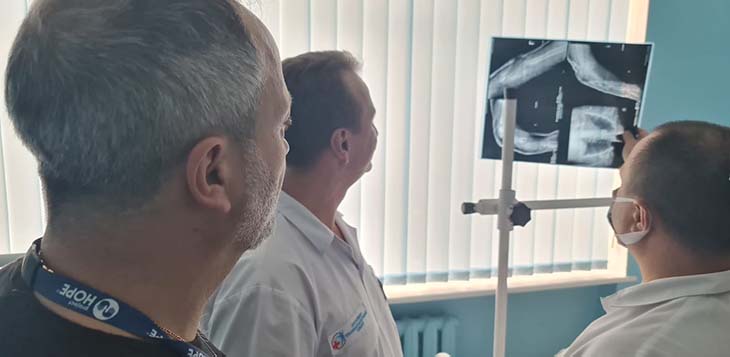
“This type of support is unique to UC Davis,” Shetty explained. “There are a lot of physicians who want to support global health efforts, but there are real barriers that keep them from being able to do something like this.”
“Having this experience and being able to share it with my colleagues makes us all better at delivering patient care,” he added. “It helps us take a holistic view of our patients and allows us to focus on how we can make the biggest impact when we treat them.”

